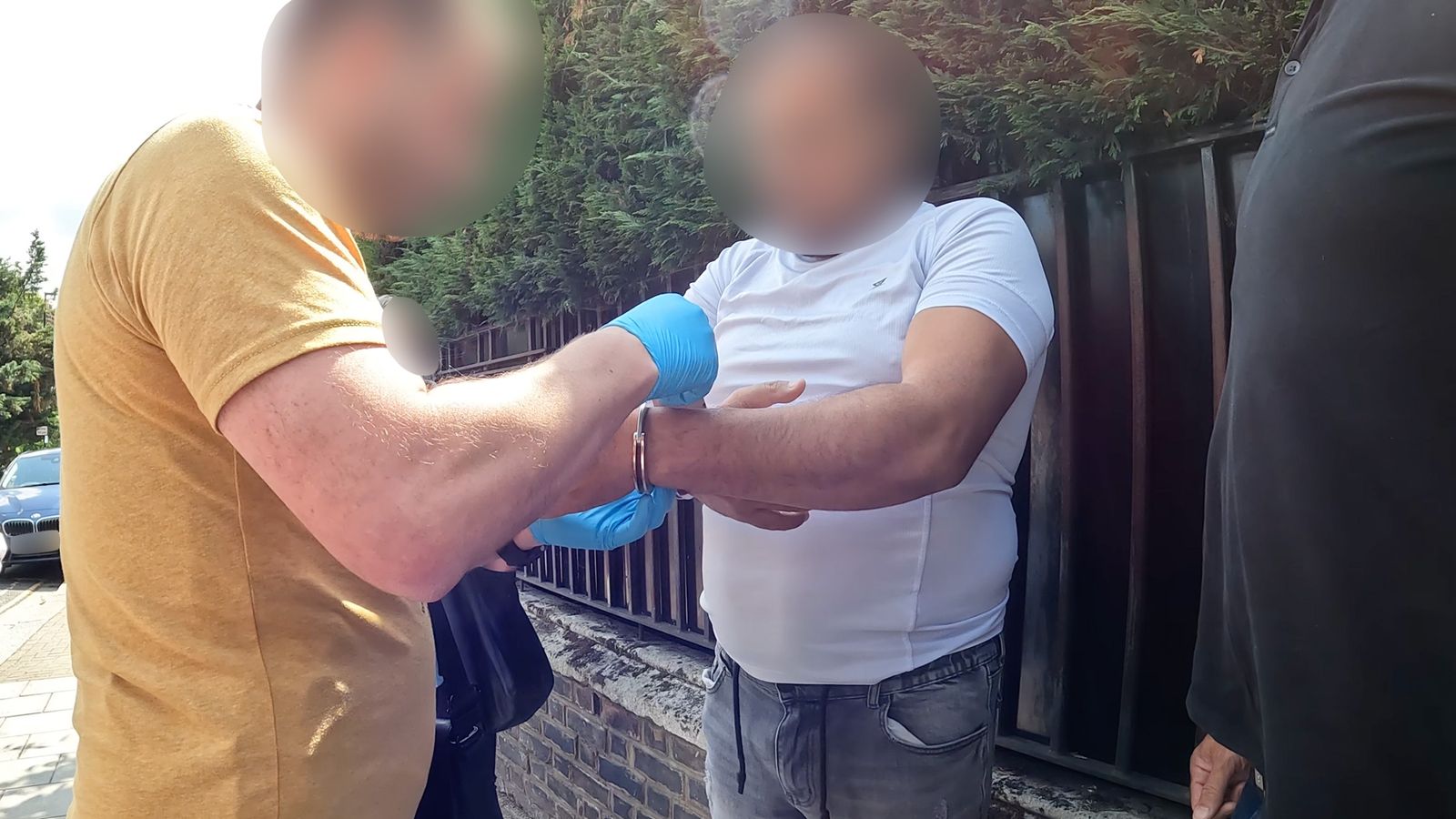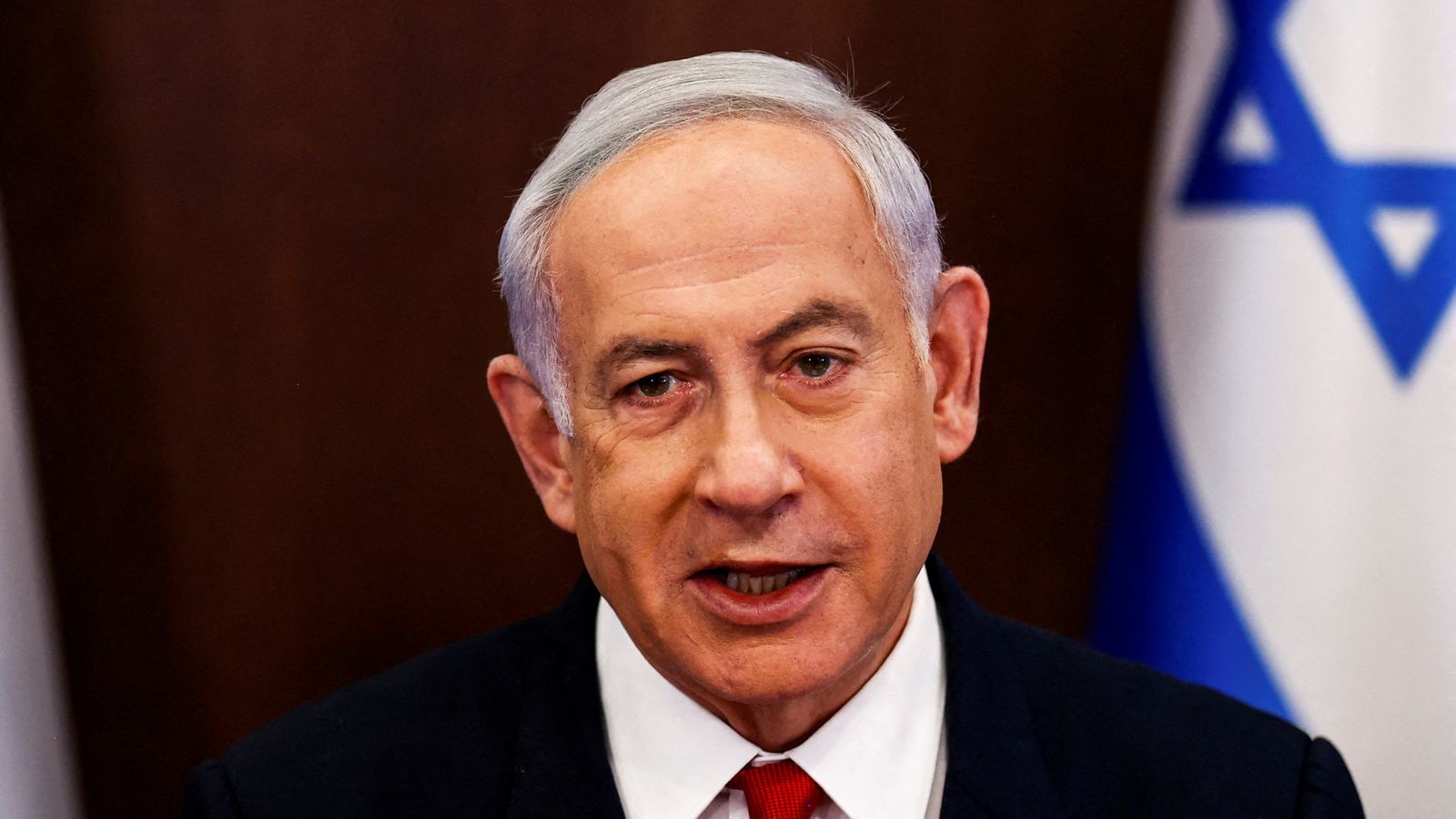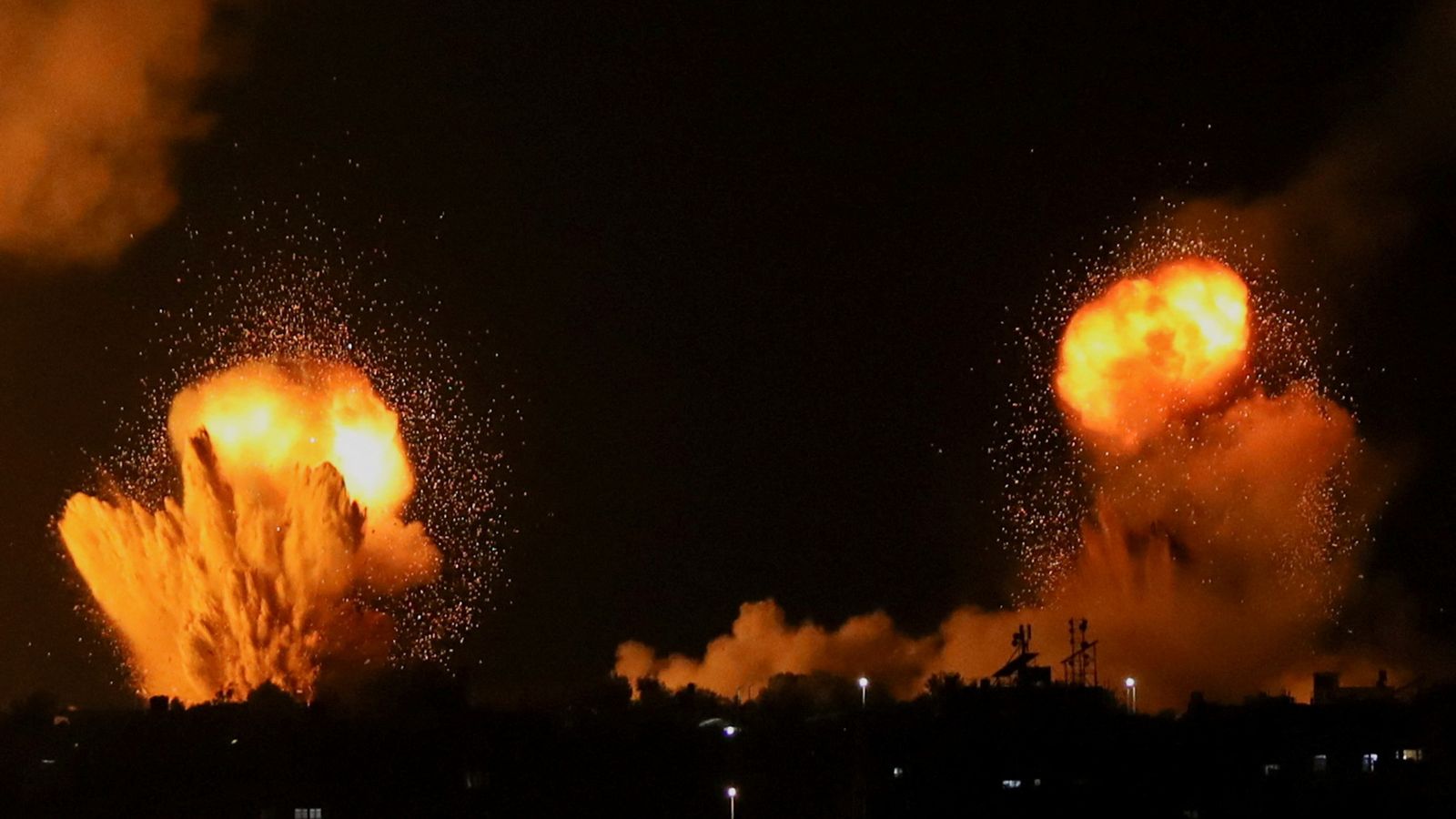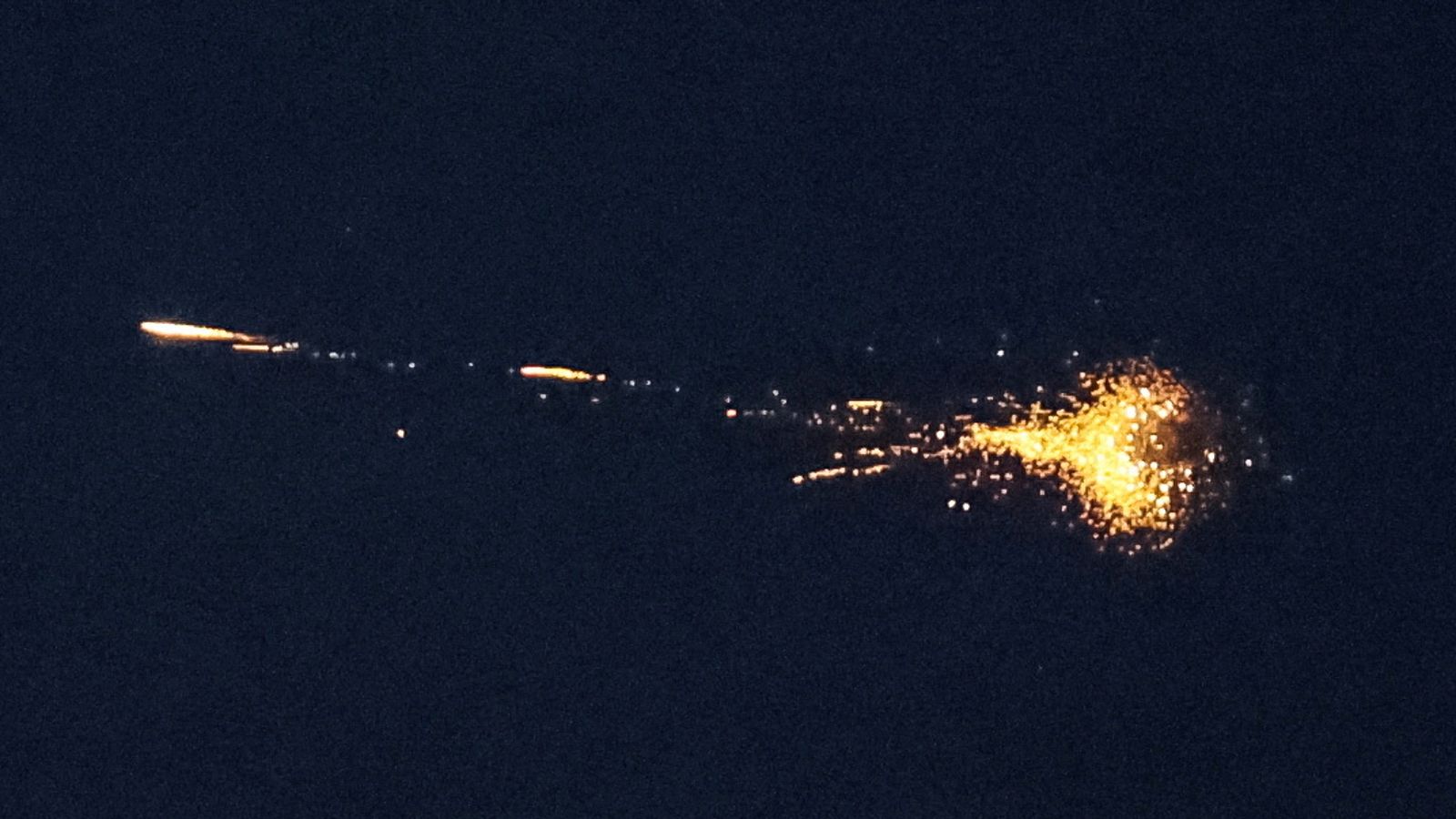A long-awaited operation to evacuate civilians from the Azovstal steel plant in the southeastern Ukrainian city of Mariupol is finally under way.
Sviatoslav Palamar, the deputy commander of the Azov Regiment, said “a ceasefire has finally happened”.
He said he hoped the evacuations from the steelworks continue until everyone in the plant, civilians and soldiers, had escaped.
The Azov Regiment, an all-volunteer infantry military unit, is helping defend the last section of the besieged port city which is not occupied by Vladimir Putin’s forces.
‘Safe passage operation’ ongoing in Mariupol, UN confirms – Ukraine news live
“There wasn’t a ceasefire before despite the enemy’s statements about it. At the same time, we faced mortar shelling. For the past two days we can say indeed a ceasefire happened at the announced time,” he said.
He added that the Azovstal plant is strewn with mines, rockets, artillery shells and unexploded cluster ordnance – and is being defended by the 36th Marine Brigade, police officers, border guards, coast guard and more.
“Some of them guard the territory, some of them prevent attempted attacks, some of them are responsible for a ceasefire, some of them help to clear the rubble under shelling,” he said.
Key developments:
- Nancy Pelosi, speaker of the US House of Representatives, meets President Zelenskyy in Kyiv
- UK ambassador feels “comfortable” after returning to the capital – despite Russian threats
- Energy ministers from EU countries to hold emergency talks on Monday
- Wives of Mariupol defenders appeal for soldiers’ evacuation
- Germany vows to stop using Russian oil exports by late summer
The deputy commander said the presence of children and civilians has made it harder to fight, and there are many injured people in the plant.
He said there is not enough water and the air smells of decomposing bodies.
As for the challenges in the next stages of evacuation, he said there is a lot of rubble and they have “no special equipment” to remove it.
“It’s hard for soldiers to pick up slabs weighing tonnes only with their arms,” he said.
Mr Palamar said the fighters in the plant will continue to resist until they receive an order not to.
Footage posted online by Ukrainian forces showed elderly women and mothers with small children wrapped up in winter clothing being helped as they climbed a steep pile of debris from the steel plant’s rubble, before boarding a bus.
Ukrainian President Volodymyr Zelenskyy said that more than 100 civilians, mostly women and children, were due to arrive in the Ukrainian-controlled city of Zaporizhzhia on Monday.
“Today, for the first time in all the days of the war, this vitally needed (humanitarian) corridor has started working,” he said in a pre-recorded address published on his Telegram messaging app channel.
A UN spokesperson said the “safe passage operation” began on Saturday and was being coordinated with the Red Cross, Russia and Ukraine.
Mr Zelenskyy tweeted: “Grateful to our team! Now they, together with #UN, are working on the evacuation of other civilians from the plant.”
On Sunday, a convoy of UN and Russian military vehicles took more than 50 people to tented accommodation in the village of Bezimenne, about 18 miles (30km) east of Mariupol, according to Reuters.
More evacuations in Mariupol
Meanwhile, the Mariupol City Council said on Telegram that the evacuation of civilians from other parts of the city would begin Monday morning.
People fleeing Russian-occupied areas have previously described their vehicles being fired on, while Ukrainian officials have repeatedly accused Putin’s forces of shelling evacuation routes on which the two sides had agreed.
One of the Azovstal plant’s defenders said Russian forces had resumed shelling the plant later on Sunday shortly after the evacuation of a group of civilians.
Denys Shlega, the commander of the 12th Operational Brigade of Ukraine’s National Guard, said on Sunday night that several hundred civilians remain trapped alongside nearly 500 wounded soldiers and “numerous” dead bodies.
Around 100,000 civilians are still in the wider city of Mariupol, where thousands of Ukrainians have been killed in relentless attacks that have devastated residential neighbourhoods.
And some 1,000 civilians are thought to be hunkered down with an estimated 2,000 Ukrainian fighters beneath the Soviet-era steel plant.
On the battlefield
Elsewhere, an explosive device damaged a railway bridge Sunday in the Kursk region of Russia, which borders Ukraine, according to the region’s government.
It follows a number of recent fires and explosions in Russian regions near the border.
In the Donetsk region, four civilians were reported killed and 11 more were injured by Russian shelling on Sunday, the Ukrainian regional governor said.
Governor Pavlo Kyrylenko wrote in a Telegram post that the deaths and seven of the injuries were in the northern city of Lyman.
He added that another person also died in the city of Bakhmut from injuries received in the Luhansk region.
In his nightly address on Sunday, President Zelenskyy accused Moscow of waging “a war of extermination” in reference to strikes against non-military targets.
He said that Russian shelling had hit food, grain and fertiliser warehouses, and residential neighbourhoods in the Kharkiv, Donbas and other regions.
“The targets they choose prove once again that the war against Ukraine is a war of extermination for the Russian army,” he said.
His comments came as the Ukrainian army said that a Russian offensive along a broad front in the country’s east was stalling following human and material losses inflicted by Ukraine’s forces.
In a Facebook post, Ukraine’s military said that Russian troops were trying to advance in the Sloboda, Donetsk and Tauride regions, but were being held back by Ukrainian forces that continue to fight village by village.




